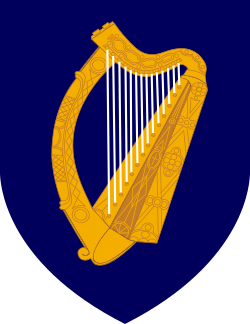| JMH v. KH | |
|---|---|
 | |
| Court | Supreme Court of Ireland |
| Full case name | J M H (Husband) v K H (Wife) |
| Decided | 26th of November 2015 |
| Citation | [2015] IESC 85 |
| Case history | |
| Appealed from | High Court |
| Court membership | |
| Judge sitting | Charleton J Denham CJ |
| Case opinions | |
| Decision by | Charleton J |
| Keywords | |
H v H, [2015] IESC 85, [1] also known as JMH v KH, is an Irish Supreme Court case in which the husband was found to have vexatiously abused the court process by repeatedly pursuing legal action against his former wife. An Isaac Wunder order was made by the court against the husband which states that any legal proceedings against his wife and children will be halted. However, the court did not suspend all legal action from the husband; rather it ruled that further legal action would require a decision by a relevant court. [2] [3] This decision is significant because the Court established guidelines for when common law principles could be reinterpreted. [4]